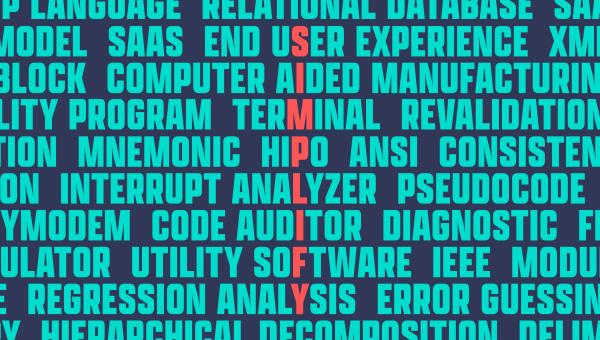Academic Performance Analyst: Role, Skills, and Career opportunities Explained
Are you drawn to the world of education technology and data-driven decision-making? A career as an Academic Performance Analyst can be both impactful and rewarding. This specialized role sits at the intersection of technology, data analysis, and academic improvement, helping schools, colleges, and universities enhance student outcomes thru actionable insights.Read on to discover everything you need to know about becoming an Academic Performance Analyst—the required skills, primary responsibilities, benefits, and opportunities for growth in this exciting field.
What Does an Academic Performance Analyst Do?
The role of an Academic Performance Analyst is pivotal in modern educational institutions. by leveraging cutting-edge education technology (EdTech) and robust data systems, these professionals analyze various data points to assess and improve student academic performance.
Key Responsibilities
- Data collection: Gathering academic, behavioral, and engagement data from multiple sources such as Learning management Systems (LMS), assessment tools, and student details systems.
- Data Analysis: Applying statistical and analytical methods to identify trends, strengths, and gaps in academic achievement.
- Reporting: Developing clear, easy-to-understand reports and dashboards for faculty, administrators, and leadership teams.
- Assessment: Evaluating the effectiveness of teaching practices, curricula, and interventions based on performance analytics.
- recommendations: Providing actionable insights and strategies to enhance student success and institutional performance.
- Stakeholder Collaboration: Working closely with educators, instructional designers, and IT teams to implement data-driven improvements.
Essential Skills for Academic Performance Analysts
To thrive as an Academic performance Analyst, certain technical and soft skills are crucial.Hear are the major competencies employers in universities, colleges, and schools are seeking:
Technical Skills
- Data Analysis & Interpretation: Expertise in analyzing large datasets using tools like Excel, SQL, SPSS, R, or Python.
- Data Visualization: Proficiency in creating impactful dashboards using software such as Tableau, Power BI, or Google Data Studio.
- Education Technology: Familiarity with popular LMS platforms (Canvas, Blackboard, Moodle) and student analytics software.
- Statistical Methods: understanding of descriptive and inferential statistics relevant to educational research.
Soft Skills
- Critical Thinking: Ability to interpret results objectively and develop evidence-based recommendations.
- Communication: Clear and concise reporting to diverse audiences, from teachers to senior management.
- Problem-Solving: Capacity to translate complex data findings into practical solutions for academic improvement.
- Collaboration: Skill in working with cross-functional teams and facilitating consensus among stakeholders.
- Confidentiality: Maintaining integrity and privacy when handling sensitive student data.
Academic and Professional Qualifications
While requirements may vary across institutions, most employers look for the following qualifications for Academic Performance Analyst jobs:
- Bachelor’s or Master’s degree in Education, Data Science, Educational Psychology, statistics, or a related field.
- Experiance working with education technology systems and analytics platforms.
- Demonstrated proficiency in statistical analysis and reporting.
- Certifications in data analytics or EdTech tools (optional,but a plus).
Benefits of Being an Academic Performance Analyst
The demand for data-driven decision-making in education is on the rise, driving the need for skilled Academic Performance Analysts. Here’s why this career path is worth considering:
- High Demand: Educational institutions increasingly invest in technology and analytics to boost student success rates.
- Impactful Work: Your analysis directly contributes to strategic decisions that improve teaching and learning outcomes.
- Career Growth: Many academic performance analysts move into senior analytic, program evaluation, or educational leadership roles over time.
- Variety of Settings: Opportunities exist in K-12 schools,colleges,universities,e-learning companies,and educational nonprofits.
- Continuous Learning: Stay engaged with the latest trends in EdTech, educational research, and data science.
career Opportunities and Advancement
The career trajectory for an Academic Performance Analyst can be diverse and promising. Here’s a snapshot of the typical pathway:
- Entry-level roles as Data Analyst or Assessment Coordinator in education settings.
- Mid-level positions as Academic Performance Analyst, Student success Analyst, or Learning Analytics Specialist.
- Senior roles such as Director of Institutional Research, Chief Data Officer, or EdTech consultant.
Growth opportunities also include branching out into related fields such as academic program evaluation, policy analysis, educational consulting, or EdTech product progress.
Practical Tips for Aspiring Academic Performance Analysts
Successfully landing a job as an Academic Performance Analyst involves more than just having the right technical skills. Here are practical tips to enhance your employability in the education technology sector:
- Build a Portfolio: Create sample data analysis projects, dashboards, or reports using real or simulated education data to showcase your capabilities to employers.
- Network: Connect with current academic analysts, attend EdTech conferences, and join professional organizations related to education and data analytics.
- Stay Current: Keep up to date with emerging trends in educational technology, assessment tools, and data privacy regulations.
- Highlight Outcomes: When applying for jobs, emphasize measurable impacts from your past work—such as improved student retention, assessment scores, or successful program implementations.
- Sharpen Communication: Practice translating technical findings into actionable recommendations for non-technical stakeholders, such as teachers and school leaders.
Why Choose a career as an Academic performance analyst?
If you’re passionate about leveraging data to make education more effective and equitable, this role offers the perfect blend of technology and purposeful impact. As schools and universities continue to invest in student-success initiatives, the need for qualified Academic Performance Analysts will only grow. This career not only allows you to harness your analytical skills but also positions you as a change agent in the world of education technology.
Conclusion
The Academic Performance Analyst is a critical role in today’s education ecosystem, shaping the future of academic programs through bright data analysis and EdTech integration. By understanding the responsibilities, honing essential skills, and staying abreast of industry trends, you can carve out a meaningful career in this vibrant sector. Whether you’re a seasoned data professional or just starting out in education technology, the opportunities in academic performance analytics are abundant and full of potential. Now is the ideal time to embark on a career where your insights can contribute to real-world improvements in academic achievement.

